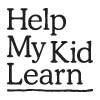What to do with this activity?
Weights and measures are the stuff of every day life, so let your child join in and get to know them.
When shopping in the supermarket, check the labels to see how much each item weighs and how it is written. If you need a particular amount of fruit or vegetables, find the supermarket weighing scales and weigh out the right amount. Notice the price per kilo that is marked on the shelf labels. It helps you decide which is the more expensive item.
In the kitchen let your child measure out dry ingredients and liquid to make a recipe correctly. Learn what a litre of milk looks like, or a kilo of potatoes.
In the bathroom, notice the amount of millilitres in your bottles of shampoo and shower gel. Stand up on the weighing scales and see how much you weigh. Show your child how to weigh something like a suitcase. First weigh yourself without the suitcase, then with the suitcase and subtract the lesser weight from the greater weight.
If you are going to the airport, don't forget that the maximum container of liquid in your hand baggage is 100 millilitres. Get your child to check that you've got it right!
-
Why am I doing this?
Everyday activities, like shopping and taking journeys provide a great opportunity for your child to practise maths skills by recognising patterns, counting out amounts, working out the best value, weighing and understanding money or understanding timetables and estimating your time of arrival!
-
How can I do more?
Estimating is a very useful maths skill for everyday life – helping you decide if you have enough money to pay for a number of items or enough paint to paint a room. Encourage your child to estimate, for example, how many potatoes you will need for dinner or how much money to buy the shopping.
Rate this activity
![]()
![]()
![]()
![]()
![]()
Based on 4 reviews
How would you rate it?
1 = Poor, 5 = Great.



